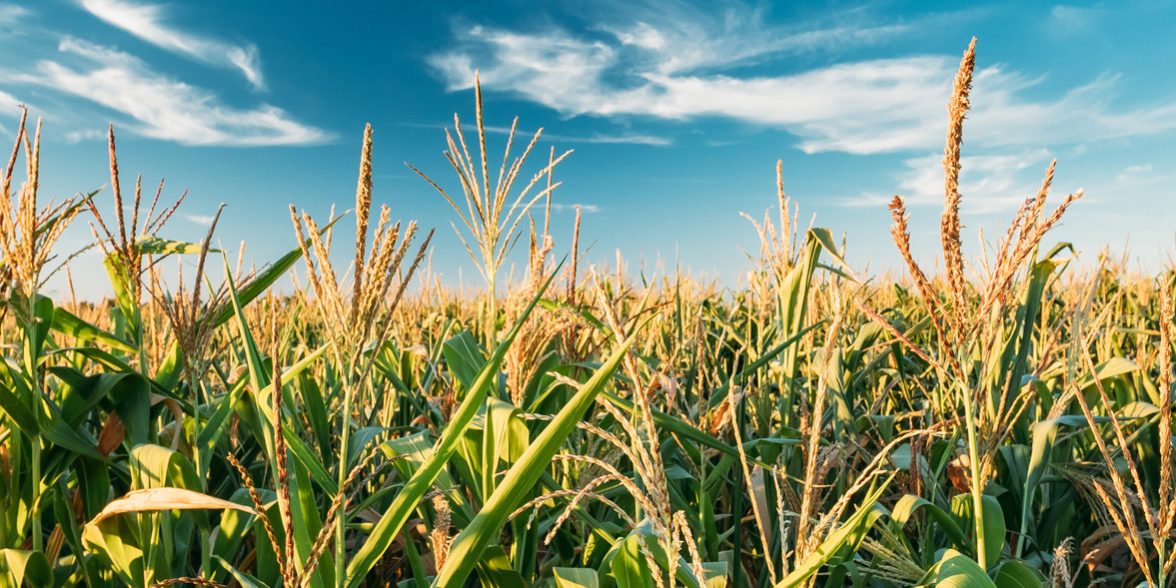Last summer, corn had a golden moment when seven-year-old Tariq was interviewed about his love for corn in a video that permeated pop culture. That same year, nearly 90 million acres of corn were planted across the United States, providing a valuable food source and driving economic growth in rural communities.
We recently called up Richard Syverson, a fourth-generation farmer and president of the Minnesota Corn Growers Association (MCGA), for our most recent episode of the Groundwork podcast. Richard and MCGA work on behalf of Minnesota’s 24,000 corn farmers, who together with neighboring states Illinois, Iowa, and Nebraska, produce more than half of the country’s corn.
Listen to this episode of Groundwork.
A large portion of the corn grown by Minnesota farmers is sent to markets abroad. “The world is hungry – the world needs protein and calories, and we have the capability of providing that on a scale that almost nobody else does,” Richard said.
Almost a third is exported to Mexico, making fair trade policies a priority for Minnesota corn growers. MCGA has taken a strong stance against Mexico’s unscientific ban on biotech corn – and urged U.S. trade officials to do the same. The U.S. Trade Representative announced the establishment of a dispute panel under USMCA last month, with Katherine Tai saying in a press release that it’s “critical that Mexico eliminate its USMCA-inconsistent biotechnology measures so that American farmers can continue to access the Mexican market and use innovative tools to respond to climate and food security challenges.”
At home, corn fuels more than human diets and livestock feed – biofuels are also creating a greener future. Richard told us to think of the broad swaths of Minnesota corn fields as solar panels that are gathering green energy that can be converted to human use. Corn ethanol reduces greenhouse gas emissions by 46 percent when compared to gasoline.
MCGA is working to grow markets for biofuels with 15 percent corn ethanol blended into it, also known as E15 or Unleaded 88. To accomplish this, MCGA has invested a million dollars to help gas stations in Minnesota install the infrastructure needed to dispense E15, while also advocating for rules and regulations that will allow year-round E15 sales nationally.
Although corn can be a critical part of addressing our nation’s climate goals, Richard warned that lawmakers shouldn’t use the Farm Bill to try to impose one-size-fits-all solutions on farmers or tie conservation practices to successful programs such as crop insurance. Agriculture is just too different to make one mandatory solution work for every farmer.
“It’s so important that ag policy recognize that ag is so big and diverse across this country, from north to south and from east to west. From dryland in west Texas, to the irrigated areas to my north and east, it’s just different,” Richard explained.
Richard also reiterated a key priority for this next Farm Bill: Do no harm to crop insurance.
“One thing we hear from our members so consistently is that crop insurance is the most important thing that comes out of the Farm Bill as far as our ability to manage risk on our operation,” Richard said. “We get to sit down with our agents and tailor-make a risk management plan that fits our operations, our financial resources, our particular soils, and the risks that those soils or climate may offer.”
Richard is passionate about speaking on behalf of Minnesota’s corn growers for so many reasons, but his driving motivation is to create a world that’s just a bit better for his grandsons who might one day want to farm.
“I stand on the shoulders of my ancestors as we made this ground productive… I sure want this ground to be better than I found it.”

